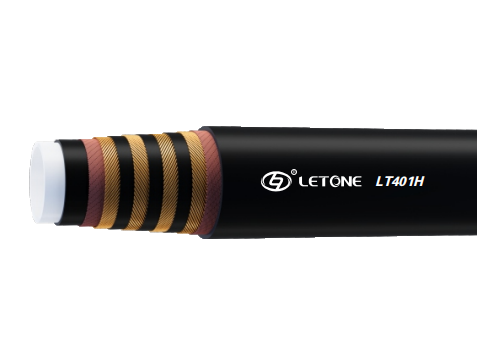Efficient and leakproof, reliable and durable - a comprehensive analysis of chemical hoses
2024-11-27 14:24:27
As an indispensable and important part of industrial production, chemical hoses are widely used in chemical, pharmaceutical, food processing and other fields. It not only plays a role in transmission between different media, but also effectively guarantees the safety and stability of production. In view of its importance in all walks of life, it is crucial for practitioners and related companies to have a deep understanding of the categories, applications, selection and maintenance points of chemical hoses.
Application fields of chemical hoses
Chemical hoses play a vital role in various industries, and their specific applications mainly include:
Chemical industry: used to transport corrosive liquids, acid and alkali solutions, solvents, etc., requiring hoses to have high corrosion resistance and stability.
Pharmaceutical industry: In the pharmaceutical industry, due to the need to maintain a high-purity working environment, the hose material must comply with GMP standards to ensure no contamination of the medium.
Food industry: Food-grade hoses dedicated to the transmission of media such as milk and beverages must take food safety as the main consideration and use materials that meet FDA standards.
Automation equipment: In automated production equipment, hoses are used for the transmission of liquids and gases, and must have high flexibility and wear resistance.
How to choose the right chemical hose
When purchasing a chemical hose, the following points need to be considered comprehensively:
1. Chemical resistance: According to the type of medium, choose a hose material that matches it to prevent corrosion and leakage.
2. Temperature and pressure: The temperature and internal pressure of the pipeline working environment are factors that cannot be ignored when choosing a hose. Make sure that the selected hose can adapt to extreme temperatures and high pressures.
3. Bendability and flexibility: In narrow and complex environments, the bendability and flexibility of the hose are particularly important. Appropriate flexibility can effectively reduce the use of hard pipes and improve the flexibility of the entire installation system.
4. Specifications and sizes: Choose hoses of appropriate specifications and sizes according to the required flow and use environment to optimize the operating efficiency of the system.
5. Compliance with industry standards: Especially in the chemical and pharmaceutical industries, ensure that the hoses comply with relevant international and domestic standards, such as ISO, FDA, GMP, etc., to ensure product quality and safety.
Maintenance and care of chemical hoses
In order to ensure that chemical hoses can achieve their maximum performance, regular maintenance and care are indispensable.
1. Regular inspection: During use, regularly check the hose for wear, cracks and leakage, and replace the aging hose in time.
2. Keep clean: remove debris inside and outside the hose to prevent blockage and pollution spread.
3. Proper storage: When not in use, ensure that the hose is stored in a cool and ventilated environment, and avoid direct sunlight and excessive bending.
4. Reasonable use: Strictly follow the design requirements, do not overload the hose, and prevent expansion or bursting.
In summary, as a key transportation tool, the life and performance of chemical hoses not only depend on materials and engineering design, but also on daily maintenance and correct use methods. With the advancement of science and technology and the continuous development of new materials, the application prospects of chemical hoses will be broader, helping to promote efficient production and safety assurance in major industries.